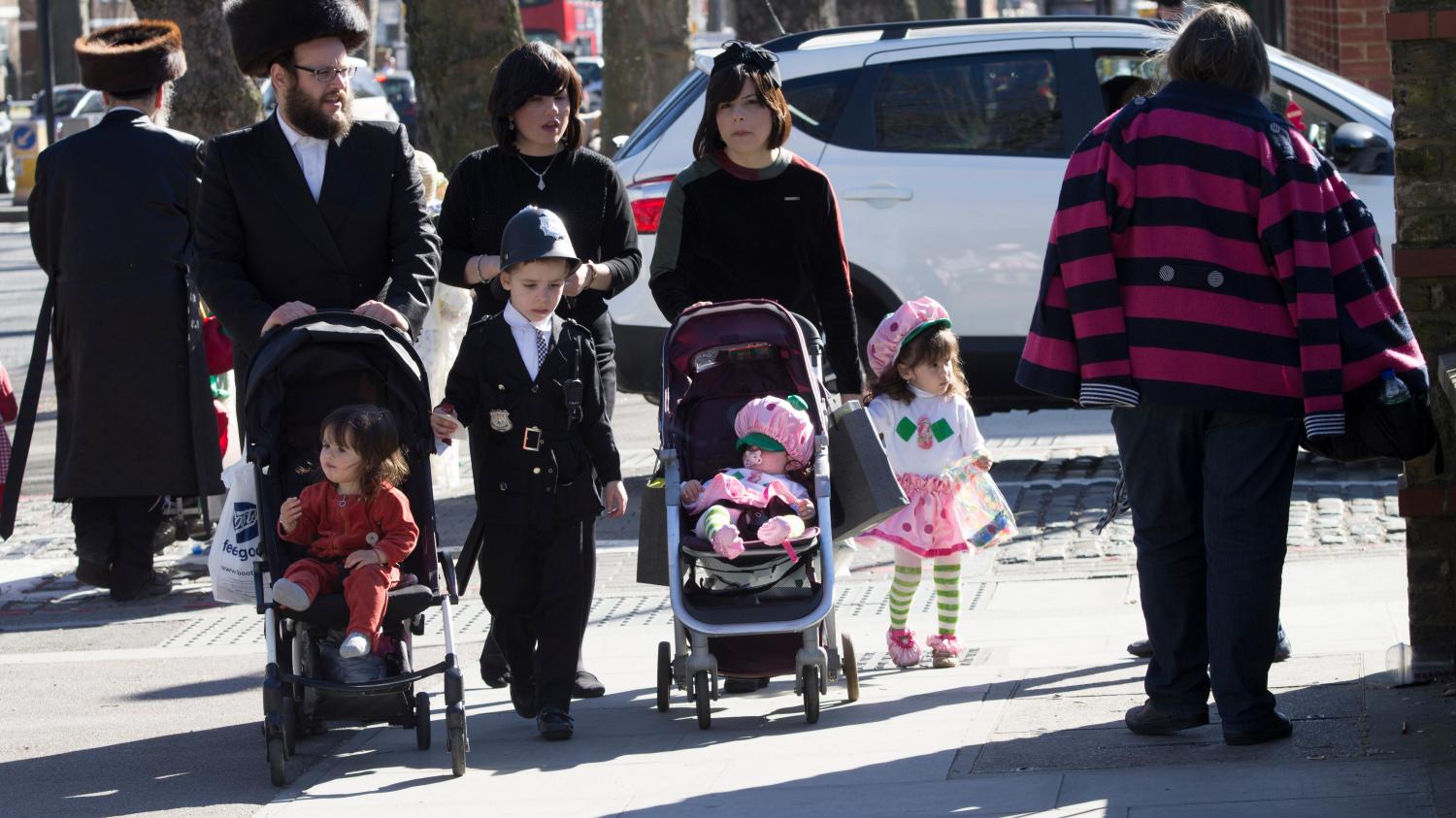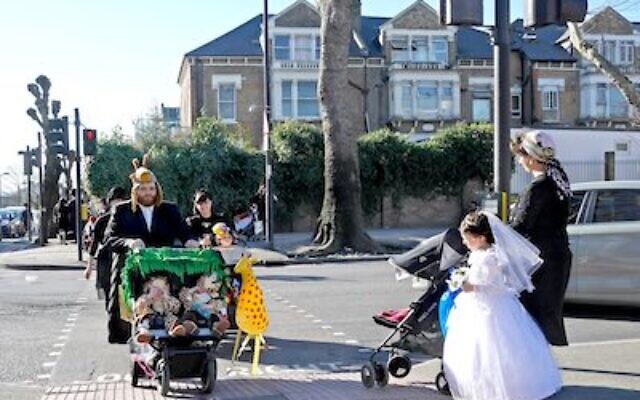OPINION: Like many Charedi women, not driving a car is entirely my decision
Stamford Hill educator Malky Davidovits responds to a recent column by Yehudis Fletcher on Charedi women not driving, writing: "It's my choice, not my husband’s or any other man’s. Why deny my agency?"
International Women’s Day – a day for celebrating woman, for empowering them and for highlighting their right to make their own choices about how they live their lives. Why then, did Yehudis Fletcher feel the need to criticise Charedi women – on this day of all days – for the way they choose to live? asks Malky Davidovits
An article decrying the choice of many Charedi women not to drive undermines the whole purpose of this international feminist movement. Despite what Fletcher wants you to think, the decision for a woman not to drive is their choice. For me this is a very personal matter.
Whatever you think about my choice, it is purely mine. Not my husband’s or any other man’s. Why do you deny my agency?
There are many Charedi women who do drive; it is not a prohibition – it is simply a lifestyle choice which they are entitled to make in the same way that women across the country are allowed to choose whether or not to drive a motorbike, to be a stay-at-home-mother or to wear make-up or not.
These are decisions we are allowed to make and I didn’t hear mass outcries when the female grandchildren of the Queen were driven to her funeral when their male cousins walked. Likewise, I don’t hear protestations of inequality and repression every time a woman walks down the aisle in a white wedding dress rather than a black trouser suit.

Criticising Charedi woman for this lifestyle choice – which, let’s face it, makes no difference to anyone else’s life – is just as repressive and belittling as the restrictive social norms from years ago when women were told how to conduct themselves.
What does it matter if Charedi women don’t drive? Indeed, aren’t we being encouraged to get out of our cars to walk and use public transport more? It’s hardly progressive to be telling us to use our cars.
But I recognise that Fletcher’s piece goes beyond driving. She seeks to use anecdotal evidence to portray Charedi women as a repressed, discriminated and unhappy group. She wants you to think that women in the community do not count and are treated as second-class citizens with no power or authority.
Yehudis Fletcher wants you to think that women in the community do not count and are treated as second-class citizens with no power or authority.
Well, let me tell you, we do count, we do make our voices heard and we do make an impact. We count on International Women’s Day and every other day of the year. We count when we chair a Board meeting, we count when we are accepting awards on behalf of charities but, most importantly, we count when we are looking after our families and bringing up our children to be respectful, law-abiding and kind British citizens.
The importance of family is integral to how the Charedi community lives and women play an incredibly important role in this.
It is true, some women choose not to work but to devote their time and energies to looking after their children. This is not to be sneered at and everyone within the community – men and women alike – respect those who do choose to stay at home. Any parent will tell you that bringing up children is the hardest job they have and is the greatest responsibility they will ever have. Let’s not dismiss this as a denial of rights or choice; but let’s see it for what it is – devoting one’s time and energy to raise the next generation.
I work day-in, day-out with women holding senior positions across the community. They are chief executives of major charities, they are head teachers and they run successful businesses. Those looking to criticise our community conveniently forget these facts when they launch yet another attack against us.
Fletcher asks you to pity the woman standing at the bus stop with a double buggy. Don’t pity us for using public transport; pity us for this relentless attack on our way of life, for the continuous broadcasting of myths about our community and for the unjustified criticism of how we choose to live.
Enough is enough; the time has come for us to stand up for ourselves. We need to be heard – not by our own community – our voice is heard loud and clear there – but amongst the wider community who seek to belittle our way of life.
So, I ask you, look at our charities and businesses and see how many of them have female directors and trustees, look at the number of women in full-time employment and come to Stamford Hill and see the number of women drivers; you might just have your misconceptions shattered.
- Malky Davidovits is a community educator living in Stamford Hill. She serves as a trustee of community charity Sunbeams and works at the Interlink Foundation.

Thank you for helping to make Jewish News the leading source of news and opinion for the UK Jewish community. Today we're asking for your invaluable help to continue putting our community first in everything we do.
For as little as £5 a month you can help sustain the vital work we do in celebrating and standing up for Jewish life in Britain.
Jewish News holds our community together and keeps us connected. Like a synagogue, it’s where people turn to feel part of something bigger. It also proudly shows the rest of Britain the vibrancy and rich culture of modern Jewish life.
You can make a quick and easy one-off or monthly contribution of £5, £10, £20 or any other sum you’re comfortable with.
100% of your donation will help us continue celebrating our community, in all its dynamic diversity...
Engaging
Being a community platform means so much more than producing a newspaper and website. One of our proudest roles is media partnering with our invaluable charities to amplify the outstanding work they do to help us all.
Celebrating
There’s no shortage of oys in the world but Jewish News takes every opportunity to celebrate the joys too, through projects like Night of Heroes, 40 Under 40 and other compelling countdowns that make the community kvell with pride.
Pioneering
In the first collaboration between media outlets from different faiths, Jewish News worked with British Muslim TV and Church Times to produce a list of young activists leading the way on interfaith understanding.
Campaigning
Royal Mail issued a stamp honouring Holocaust hero Sir Nicholas Winton after a Jewish News campaign attracted more than 100,000 backers. Jewish Newsalso produces special editions of the paper highlighting pressing issues including mental health and Holocaust remembrance.
Easy access
In an age when news is readily accessible, Jewish News provides high-quality content free online and offline, removing any financial barriers to connecting people.
Voice of our community to wider society
The Jewish News team regularly appears on TV, radio and on the pages of the national press to comment on stories about the Jewish community. Easy access to the paper on the streets of London also means Jewish News provides an invaluable window into the community for the country at large.
We hope you agree all this is worth preserving.






















